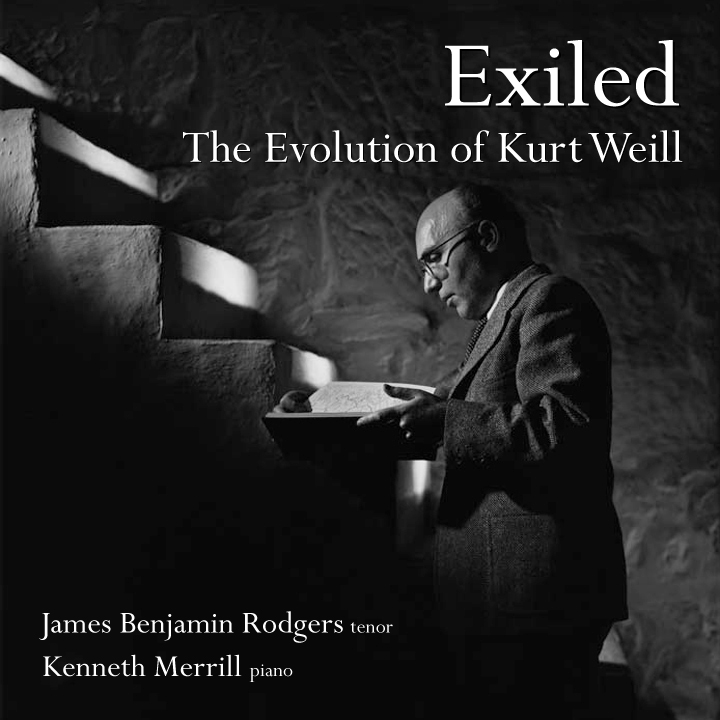More to Discover
If you have enjoyed scratching the surface of Weill's life and wish to learn more, here are some resources to continue you on your journey of discovery:
Website: The Kurt Weill Foundation
An amazing resource that is brilliantly maintained by the Weill Foundation. Is is a one stop shop for information on Weill, what is happening in the scholarship of his works, what performances of his music are happening as well as having great information on the lives of Weill and Lenya.
Book: Kurt Weill an Illustrated Life
Written by Jürgen Schebera in german and translated by Caroline Murphy, this is a wonderful starting point for a summary of Weill's life. It provides numerous insights and the fantastic images give a wonderful sense of the world Weill lived in. Murphy's seamless translation makes for a great read.
Recording: The Unknown Kurt Weill - Teresa Stratas
Stratas, who judged me in the Lenya Competition, produced this remarkable recording in 1982. Listening to it was my first great experience of Weill's music. Her sensitivity to the style of this material is second to none and the album served as a great inspiration for my project, as well as those of many other artists. Definitely worth a listen, or ten.
Book: Speak Low (When You Speak Love)
The letters of Kurt Weill and Lotte Lenya as edited and translated by Lys Symonette and Kim H. Kowalke. This is a remarkable and in depth look at Weill through his correspondance with Lenya. The insights are endless and the inside look at this fascinating relationship is very entertaining. Symonette and Kowalke also do a great job at putting the letters in the context of both Weill's life and the time period. An amazing book if you want to delve in deep.
The Time of Harvest
After their success with Lost in the Stars Weill and Anderson had confirmation that this could be a fruitful theatrical collaboration. They immediately moved on to their next project, A Raft on the River, a musical based on Mark Twain's Huckleberry Finn. Tragically, the work would never be completed. On March 17th, 1950, Weill suffered a heart attack while at home. Two days later, his condition worsening, he was taken to hospital where he died on April 3rd.
Just weeks before his death, Weill wrote to his parents in Israel: "All sorts of things have happened with my works and it almost looks as if I will have a time of harvest after 25 years of hard, untiring work, not in a material sense but in a purely idealistic sense".
Weill was right; the time of harvest had come. After his death, Lost in the Stars continued its run on Broadway and would ultimately tour 10 cities in the United States. Two years later, Mark Blitzstein's American translation of Three Penny Opera had a tryout at Brandeis University with Lotte Lenya playing Jenny and Leonard Bernstein conducting. It was obvious to all those present that this adaptation was bound for success. The production opened in New York on March 10th 1954 and ran for seven years, a total of 2,611 performances. This was, at the time, the longest run in Off-Broadway history.
Weill's career had come full circle. His most successful German work had now had even greater success, 26 years later, in New York. Though not yet fully appreciated for the magnitude of his catalogue, it became clear that Kurt Weill would be an interminable ingredient in the American musical landscape.
